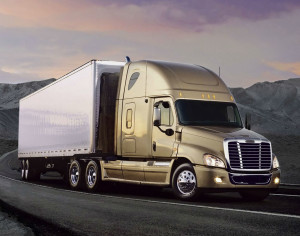A recent thought provoking article by Scott Santens on Self Driving trucks brings some interesting projections and thoughts on the future of the trucking industry.
Today, Truck Driving is the most common job in the United States having overtaken secretaries and manufacturing jobs over the last 30+ years due to trucking being immune from the two of the biggest trends affecting U.S. jobs: globalization and automation.
Truck driving is just about the last job in the country to provide a solid middle class salary after the notable volume of manufacturing jobs were sent overseas.
The boom in ecommerce and the need for more efficient, reliable shipping across nearly all industries B2B and B2C will continue to lead to a further surge in the need for trucking services.
The trucking industry projects to see 21% more trucking jobs by 2020 while continuing to be plagued with a shortage of drivers.
Enter the self driving truck.
The article suggests that self driving trucks will decimate local economies and lead to countless unemployed truckers.
It is fair to say that self driving trucks will become a reality and will change the role of truck drivers on some level. But will it ever be possible for a semi truck to operate completely autonomously without the need for the truck driver?
If a truck breaks down, has a software malfunction, or gets into an accident how is the freight retreived, secured and taken off the road when it is between distribution centers?
When the self driving truck becomes ubiquitous what will it mean to be a truck driver?
For one the massive network of CDL training schools will need to evolve from training traditional truck driving to including management, troubleshooting and overriding of the self driving software.
The cost of self driving trucks will also likely be significantly higher than a traditional semi truck at least in the beginning which will likely notably change the economics of commercial truck leasing
Lastly what does this mean for the Owner-Operator. With about 350,000 Owner-Operators in the US according to estimates this is a significant factor in the trucking industry. Will the self driving truck lead to logistics companies relying less on owner operators because they will be able to hire less skilled labor to sit in trucks while computers do the work? Will it make it easier for Owner Operators to expand their small business and hire their own employees?
In the case of the self driving truck there are more questions than answers, but it is clear that it will not be a simple transition and while the technology will be disruptive, will it ever allow logistics companies to hire less skilled labor to sit along for the ride or will the operation of this software and the driving of the truck when it matters lead to higher salaries for truck drivers?
